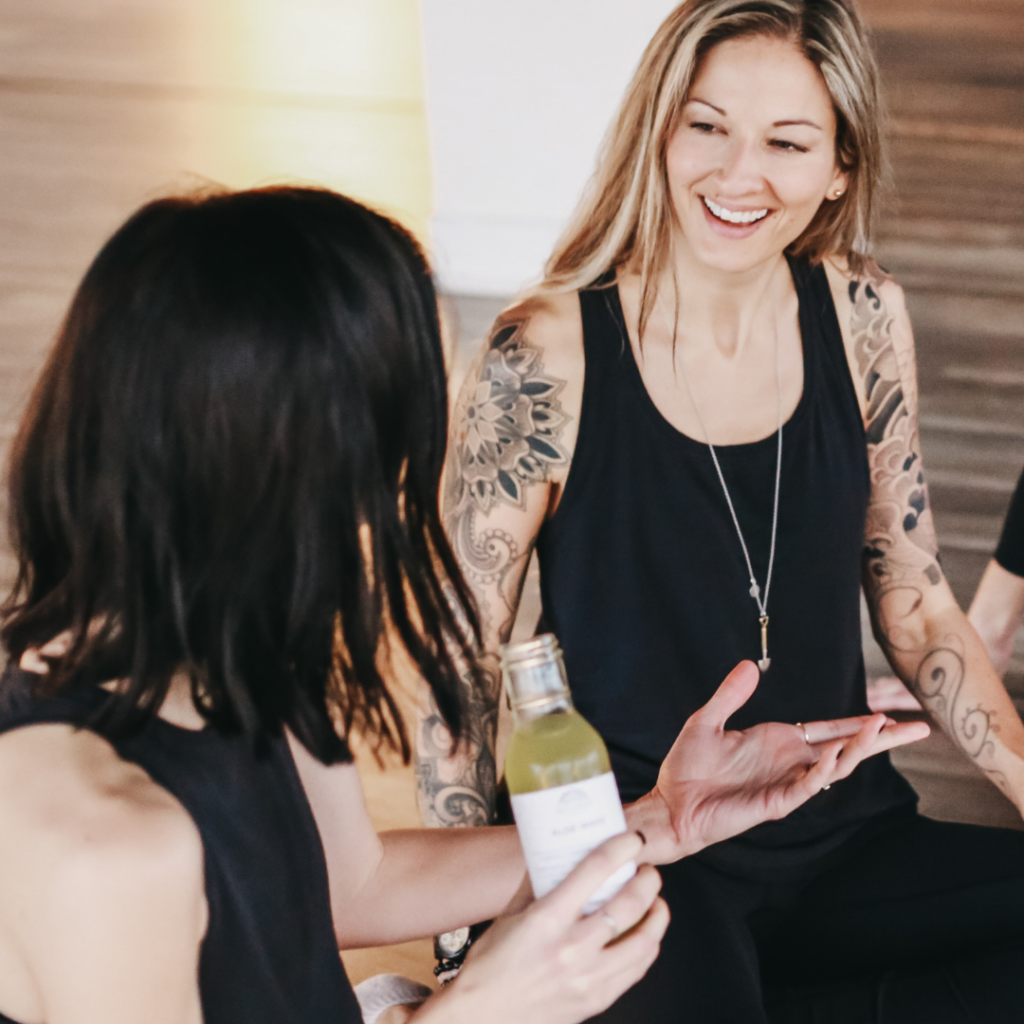Erin Moraghan
This is not a post about whether or not you should drink.
Whether you choose to drink or not is up to you. My personal mission is to live with more empowered intentionality, and in doing so, spark ways for more of us do the same by growing and learning together. Why? Because, like most of us, I’ve spent many years unknowingly numbing the uncomfortable moments of life with brownies, spicy shiraz, many cigarettes, hours of social scrolling, and all the rest. I don’t have all the answers, and I’m right here growing with you. Whether you’re sober AF or just finished your third afternoon beer bong. I just know that life is richer when we vibe higher and numb less….even when things are tougher than tough.
This is a conversation about empowered wellness.
I won’t dive into all the health reasons alcohol doesn’t deserve a spot on our list of things we do for our physical wellbeing. But if we’re to be empowered about our mental and physical health journey, we’ve got to get real about the energy we’re creating in our bodies and lives so we can own our paths forward in the most optimal ways. Right?
It starts with owning our energy.
Here’s what happens. We finish a stressful workday, and maybe we just need to UNWIND. Right? It’s been go, go, go and man, a glass of wine sure would bring it all down a notch. Maybe even calm that anxiety that seems to have become a chronic thing. And now that the bottle’s open…
Here’s where we went wrong though – and it didn’t start with the wine, it started with the morning. We woke up in a way that invited the day to happen to us, instead of owning the day and working a strategy that creates energy rather than depletes it.
Maybe if we’d done a short morning practice and been intentional about eating well, having a short stretch, limiting caffeine intake, and getting a few minutes of fresh air, we’d be ending our day feeling energized and ready for a walk, a workout, cooking, or an inspired creative project.
Anxiety doesn’t just happen to us. It’s a message from the body that something needs addressing, so numbing it with a glass of wine will ultimately just grow the anxiety over time, leading to a potentially chronic scenario.
Drinking affects authenticity.
There are physiological reasons we feel hangovers. But there are psychological reasons, too. When we drink, we relax a bit. Serotonin levels might elevate, leading us to feel happier. This is temporary. During this state, our judgement is affected and we choose to eat, drink, say, accept, and think things that we might otherwise not.
Maybe we set out to meet friends for a quick after-work drink, with intentions to be home for dinner with our partner/kid/cats. But we relax and think, Hey! I never wind down like this. I think I’ll have another. And another. And let’s order those truffle fries and get the good champagne because hey, we deserve it. Add a last-call pizza and tomorrow morning, your body is recovering from an assault on all levels. What it craves? Salt, fat, sugar, coffee, and maybe even another drink to soften the edges of that Hangxiety. Because you also didn’t mean to text your boss at 11 or fall asleep in your pants and now you’re starting your day feeling like a first-year rookie. And this feeling blows.
But everyone drinks.
Peer pressure seems to have a bigger effect on adults than kids. First of all, not everyone drinks. Like attracts like, so if you’re a frequent drinker, odds are, so are your friends. And just because something is common – like frequent and daily drinking – doesn’t mean it’s normal or healthy.
If you’re fearful that people will harass you with questions like “Oh what you’re not drinking with us tonight?” or “What, are you an alcoholic or something?” or “So you’re on a health kick and now you’re never going to drink again?”, you can remind yourself that all our choices are simply about the moment.
“Right now, I’m just sticking with this delicious sparkling water, thanks, Julie!”
Making the choice to drink less is actually just making a choice to be more present, intentional, authentic, and best of all healthy. Wellness in body and mind. While it might feel at first like you’re giving up part of your lifestyle, the tradeoff quickly becomes with it in the form of more energy, less brain fog, fewer regrets, and a healthier, less inflamed body and brain. Before long, you’ll be upholding healthy commitments to yourself with more ease, sleeping better, and just generally feeling a lot more inspired, creative, and basically, like you.

